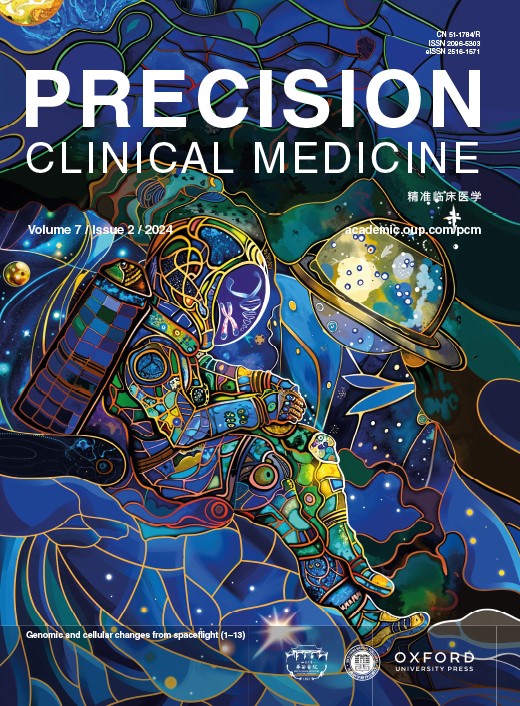弥漫性大b细胞淋巴瘤拷贝数变异的全基因组特征及其靶向治疗的意义
IF 5.1
4区 医学
Q1 MEDICINE, RESEARCH & EXPERIMENTAL
引用次数: 3
摘要
弥漫性大b细胞淋巴瘤(DLBCL)是一种侵袭性血液系统恶性肿瘤,约40%的病例复发或难治性。它主要是由于各种遗传和表观遗传变异的积累而发展起来的,这些变异有助于其攻击性。虽然大范围的结构改变在DLBCL中有报道,但它们在发病机制中的功能作用以及作为潜在治疗靶点的作用尚未得到很好的理解。在这项研究中,我们检测和分析了11种人DLBCL细胞系(4种活化b细胞样[ABC]和7种生发中心b细胞样[GCB])的拷贝数变异(CNVs),这些细胞系可作为DLBCL癌细胞生物学的模型系统。在这些细胞系的CNV谱中观察到的显著异质性和与ABC亚型相关的不良预后表明,个体化筛查对于诊断和预后目标的重要性。在细胞系中表现出复制改变的关键癌症基因的功能分析揭示了十种潜在靶向免疫致癌途径的激活/破坏。基因组引导的硅治疗,假定目标是这些途径被阐明。根据我们的分析,五个与最差生存预后相关的cnv基因被提出作为DLBCL的潜在预后标志物。本文章由计算机程序翻译,如有差异,请以英文原文为准。
Genome-wide characterization of copy number variations in diffuse large B-cell lymphoma with implications in targeted therapy
Abstract Diffuse large B-cell lymphoma (DLBCL) is the aggressive form of haematological malignancies with relapse/refractory in ~ 40% of cases. It mostly develops due to accumulation of various genetic and epigenetic variations that contribute to its aggressiveness. Though large-scale structural alterations have been reported in DLBCL, their functional role in pathogenesis and as potential targets for therapy is not yet well understood. In this study we performed detection and analysis of copy number variations (CNVs) in 11 human DLBCL cell lines (4 activated B-cell–like [ABC] and 7 germinal-centre B-cell–like [GCB]), that serve as model systems for DLBCL cancer cell biology. Significant heterogeneity observed in CNV profiles of these cell lines and poor prognosis associated with ABC subtype indicates the importance of individualized screening for diagnostic and prognostic targets. Functional analysis of key cancer genes exhibiting copy alterations across the cell lines revealed activation/disruption of ten potentially targetable immuno-oncogenic pathways. Genome guided in silico therapy that putatively target these pathways is elucidated. Based on our analysis, five CNV-genes associated with worst survival prognosis are proposed as potential prognostic markers of DLBCL.
求助全文
通过发布文献求助,成功后即可免费获取论文全文。
去求助
来源期刊

Precision Clinical Medicine
MEDICINE, RESEARCH & EXPERIMENTAL-
CiteScore
10.80
自引率
0.00%
发文量
26
审稿时长
5 weeks
期刊介绍:
Precision Clinical Medicine (PCM) is an international, peer-reviewed, open access journal that provides timely publication of original research articles, case reports, reviews, editorials, and perspectives across the spectrum of precision medicine. The journal's mission is to deliver new theories, methods, and evidence that enhance disease diagnosis, treatment, prevention, and prognosis, thereby establishing a vital communication platform for clinicians and researchers that has the potential to transform medical practice. PCM encompasses all facets of precision medicine, which involves personalized approaches to diagnosis, treatment, and prevention, tailored to individual patients or patient subgroups based on their unique genetic, phenotypic, or psychosocial profiles. The clinical conditions addressed by the journal include a wide range of areas such as cancer, infectious diseases, inherited diseases, complex diseases, and rare diseases.
 求助内容:
求助内容: 应助结果提醒方式:
应助结果提醒方式:


